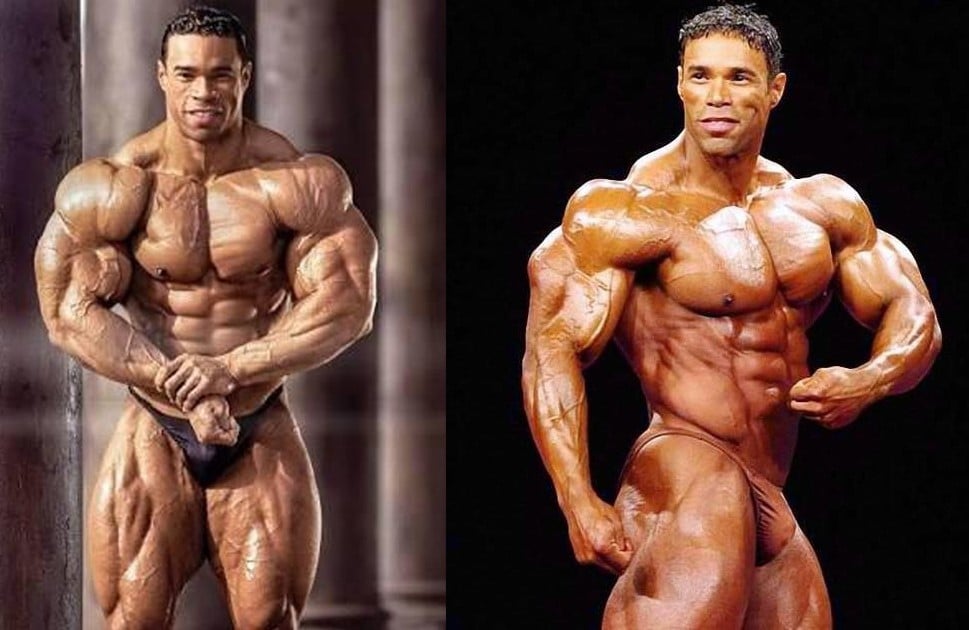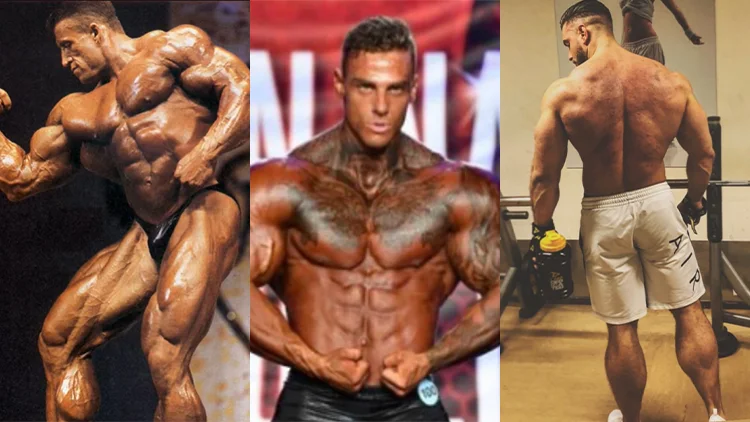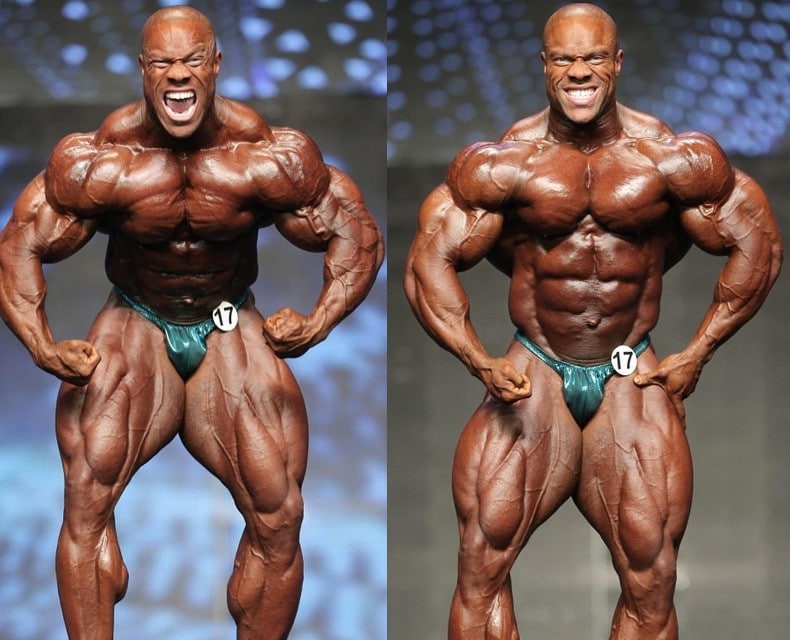When it comes to bodybuilding, genetics play a crucial role in determining an athlete’s success. Two individuals who have been widely recognized for having exceptional genetic traits in the world of bodybuilding are Flex Wheeler and Phil Heath. Both athletes have been praised for their remarkable proportions, muscle size, detail, and conditioning that set them apart from their competitors. Flex Wheeler’s genetic makeup allowed him to excel in the sport and achieve great success, while Phil Heath’s flawless physique and unique muscle bellies have made him a dominant force in bodybuilding. In this article, we will explore the impact of genetics on bodybuilding success and delve into what sets these athletes apart from their peers.
The Role of Genetics in Bodybuilding Success
Understanding the impact of genetics on muscle growth and body composition
Genetics play a crucial role in determining an individual’s potential for success in bodybuilding. Our genes encode for proteins that influence traits such as muscle size, recovery capacity, and muscle detail, all of which are advantageous in the sport. While genetics provide a foundation, it is essential to understand that environmental factors also play a significant role in gene expression. This means that while genetics are important, they must be complemented with the right training stimulus to reach their full potential. It is important for aspiring bodybuilders to recognize the influence of genetics on their journey and set realistic expectations based on their genetic predispositions.
Comparing genetic advantages in elite bodybuilders
When comparing the genetic advantages of elite bodybuilders such as Kevin Levrone, Flex Wheeler, Ronnie Coleman, and Phil Heath, it becomes evident how genetics can impact success in the sport. These athletes have been able to achieve extraordinary feats in bodybuilding due to their exceptional genetic traits. Factors like muscle bellies, symmetry, and muscle growth potential contribute significantly to their success on the competition stage. While hard work and dedication are essential, genetics play a crucial role in determining the ultimate success of these elite athletes. By analyzing the top bodybuilders with the best genetics, we can gain a deeper understanding of how genetic predispositions influence muscle development and body composition in bodybuilding.
Flex Wheeler: A Phenomenon in Bodybuilding Genetics

An overview of Flex Wheeler’s bodybuilding career
Flex Wheeler, known as a phenomenon in bodybuilding genetics, has made a significant impact on the sport with his iconic physique. Despite never winning the Mr. Olympia competition, Wheeler’s genetic traits, such as his unique muscle insertions and ability to grow, have solidified his place among the genetic elite of bodybuilders. His four Arnold Classic wins and three second-place finishes at the Mr. Olympia contest highlight the incredible genetic potential that he maximized through his training and diet.
Exploring the genetic traits that set Flex Wheeler apart
When examining the genetic traits that make Flex Wheeler stand out in bodybuilding, it becomes clear that his unmatched symmetry and proportions are a result of superior genetics. Wheeler’s physique, praised by legends like Arnold Schwarzenegger, showcases his long, full muscle bellies and tiny joints that contribute to his god-like physique. Despite never winning the ultimate title of Mr. Olympia, Wheeler’s genetic gifts, such as his exceptional muscle insertions and overall symmetry, have solidified his status as one of the greatest bodybuilders to have graced the sport.
Flex Wheeler’s training and diet: Maximizing genetic potential
Flex Wheeler’s training and diet regimen played a crucial role in maximizing his genetic potential and achieving a physique that was unparalleled in the bodybuilding world. His dedication to the sport, combined with his unique genetic traits like tiny joints, long muscle bellies, and exceptional symmetry, allowed him to reach the pinnacle of success in the sport. Wheeler’s four Arnold Classic wins and multiple second-place finishes at the Mr. Olympia contest are a testament to the importance of genetics in bodybuilding success, as well as the dedication and hard work required to fully realize one’s genetic potential in the sport.
Phil Heath: The Gift of Perfect Genetics
Phil Heath’s rise to bodybuilding prominence
Phil Heath’s journey to becoming one of the most successful bodybuilders in the world can be attributed to his exceptional genetic advantages. His rise to prominence in the bodybuilding world has been marked by his flawless physique and unparalleled success, which have set him apart from his peers. Through hard work, dedication, and a deep understanding of his genetic gifts, Phil Heath has achieved a level of success that few can match.
Analyzing the genetic advantages of Phil Heath’s physique
When analyzing the genetic advantages of Phil Heath’s physique, it becomes evident that his unique genetic traits play a crucial role in his success. Phil Heath possesses the ability to build muscle efficiently and recover quickly, giving him an edge over his competitors. His flawless muscle insertions, exceptional symmetry, and overall unworldly perfection are a testament to the genetic blessings he has received.
- Flawless muscle insertions
- Exceptional symmetry
- Efficient muscle building
How Phil Heath’s genetics have influenced his training and success
Phil Heath’s genetics have not only influenced his training regimen but have also contributed significantly to his consistent success in bodybuilding competitions. While Heath is known for his unparalleled work ethic and dedication to his craft, his supreme genetics have played a vital role in his achievements. By understanding and harnessing his genetic advantages, Phil Heath has been able to reach the pinnacle of success in the sport of bodybuilding.
Key points:
- Work ethic and dedication
- Genetic influence on training
- Consistent success in competitions
Genetic Traits Common Among Top Bodybuilders
Muscle size and symmetry: The hallmarks of bodybuilding genetics

One of the key genetic traits common among top bodybuilders is their ability to develop significant muscle size and achieve exceptional symmetry in their physique. Genetics play a crucial role in determining an individual’s muscle-building potential, influencing factors such as muscle fiber composition, hormone levels, and muscle insertions. Bodybuilders with favorable genetic traits often exhibit well-defined muscles, proportionate body shape, and balanced muscle development, which are essential for success in competitive bodybuilding.
The significance of muscle insertions and fiber types
Muscle insertions and fiber types are important genetic factors that impact an individual’s muscle-building potential and overall physique. Bodybuilders with favorable muscle insertions tend to have better muscle shape, definition, and overall aesthetics, as the insertion points of muscles can determine their size and appearance. Additionally, muscle fiber types, such as fast-twitch and slow-twitch fibers, play a role in muscle growth, strength, and endurance, influencing an individual’s performance in the gym and on stage.
Recovery and resilience: How genetics affect training outcomes
Genetics also play a significant role in an individual’s ability to recover from intense workouts and bounce back from setbacks, showcasing resilience in the face of challenges. Bodybuilders with superior genetic traits for recovery tend to experience faster muscle repair, reduced muscle soreness, and improved muscle growth following training sessions. This genetic advantage allows them to push their limits in the gym, train more frequently, and achieve better training outcomes compared to individuals with less favorable recovery genetics.
Key Takeaways:
- Genetic traits such as muscle size, symmetry, muscle insertions, and fiber types are crucial for success in bodybuilding.
- Understanding the role of genetics in bodybuilding can help individuals set realistic expectations and work towards their fitness goals.
- Genetic testing can provide insights into an individual’s genetic predispositions, but it is essential to approach the results with caution.
- The top bodybuilders in the sport demonstrate exceptional genetic traits for muscle development, recovery, and resilience, setting them apart in competitive bodybuilding.
Maximizing Bodybuilding Potential Through Genetics and Training

Strategies for optimizing genetic potential in bodybuilding
Genetics play a crucial role in determining an individual’s potential in bodybuilding. Advantages such as muscle-building ability, recovery capacity, and body mechanics can significantly impact performance. To optimize genetic potential, individuals should focus on:
1. Tailored Training Programs:
- Customizing workout routines to leverage genetic strengths
- Targeting muscle groups based on genetic advantages
2. Strategic Nutrition:
- Adopting a diet that supports muscle growth and recovery
- Adjusting macronutrient intake based on individual genetic traits
The role of diet, training, and lifestyle in enhancing genetic advantages
In addition to genetics, factors such as diet, training, and lifestyle can further enhance genetic advantages in bodybuilding:
1. Diet:
Consuming the right balance of macronutrients and micronutrients can optimize muscle growth and recovery. Tailoring diet plans to individual genetic traits can maximize results.
2. Training:
Following a structured workout regimen that targets specific muscle groups and incorporates progressive overload can enhance genetic advantages. Consistency and proper form are key in maximizing potential.
3. Lifestyle:
Factors like sleep, stress management, and overall lifestyle choices can impact genetic expression in bodybuilding. Prioritizing recovery and overall well-being can amplify genetic advantages.
Understanding the limits of genetics and the importance of hard work
While genetics provide a foundation for success in bodybuilding, hard work and dedication are essential in reaching one’s full potential:
1. Managing Expectations:
Acknowledging genetic limitations and setting realistic goals is crucial for long-term success in bodybuilding. Understanding that progress takes time and effort is key.
2. Consistent Effort:
Consistency in training, nutrition, and lifestyle habits is vital in overcoming genetic barriers and maximizing results. Hard work and perseverance can bridge the gap between genetic potential and achievement.
In conclusion, by understanding and optimizing genetic advantages through tailored strategies, individuals can unlock their full potential in bodybuilding. While genetics provide a starting point, it is the combination of hard work, dedication, and smart training practices that ultimately lead to success in the competitive world of bodybuilding.
conclusion
In conclusion, genetics undoubtedly play a significant role in determining an individual’s potential for success in bodybuilding. As highlighted through the careers of bodybuilding legends like Flex Wheeler and Phil Heath, genetic advantages can greatly impact muscle growth, symmetry, and overall physique development. Understanding one’s genetic predispositions and leveraging them through tailored training strategies can help aspiring bodybuilders maximize their potential and strive for greatness in the sport. While genetics may not be the sole determinant of success in bodybuilding, they certainly provide a valuable foundation upon which individuals can build their physique and strive for excellence. Ultimately, embracing and optimizing one’s genetic advantages can be key to unlocking one’s full potential in the competitive world of bodybuilding.









